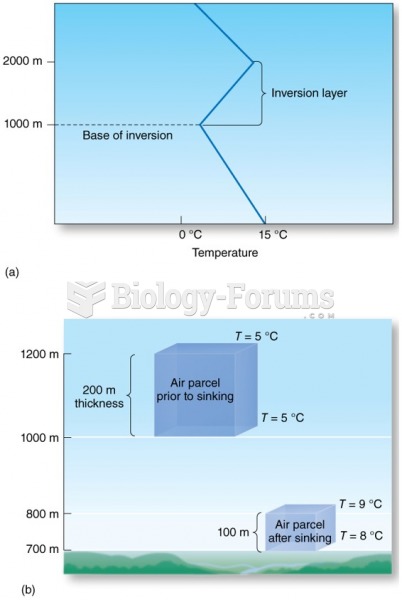Answer to Question 1
The patient did not have elevated cardiac enzymes.
Chest pain and tightness subsided without nitrates or pain medications.
Shortness of breath resolved after administration of lorazepam 1 mg IVP.
Patient laboratory values were all within normal limits.
Patient responded favorably to an anxiolytic.
Anxiety tends to interfere with attention, so the first stage of memory, encoding, might not occur.
When events are not encoded, they are not available in memory for later recall.
Answer to Question 2
Acamprosate (Campral) should be initiated immediately after alcohol detoxification has taken
place and the patient has abstained from alcohol for 7 days. If relapse occurs, the medication
should be continued during the relapse. Recommended therapy is 1 year. Common side effects
include GI upset, myalgia, headache, rash, syncope, palpitations, edema, and impotence.
Naltrexone (ReVia) is used to reduce craving for alcohol. Common side effects to watch for are low
energy, dizziness, headache, nausea and vomiting, diarrhea, constipation, and increased thirst.
Patient must be opiate free for 7 to 10 days before starting. However, this medication cannot be
given to patients with hepatitis or liver failure, and J.G.'s laboratory values indicate liver damage or
disease.
Disulfiram (Antabuse) is an aversive treatment used to prevent the resumption of alcohol
consumption. Reactions can occur with alcohol consumption and up to 14 days after the
last drink. Reactions include flushing, sweating, headache, neck pain, palpitations, dyspnea,
hyperventilation, tachycardia, hypotension, and nausea and vomiting. Serious side effects can
include chest pain, difficulty breathing, severe hypotension, confusion, convulsions, or death.
Prompt medical attention is necessary. Activate emergency medical system and transport to the
nearest ED. Diphenhydramine (Benadryl) 50 mg IM or IV is often prescribed as a GI decontaminant
to reduce absorption of the toxic acetaldehydes. The patient needs to be aware that even small
amounts of alcohol, such as those in mouthwash or cough syrup, can cause a reaction.
Registered dietitian to provide medical nutrition therapy to ensure proper caloric and vitamin and
mineral intake.
Education regarding the properties, side effects, and long-term physical or emotional effects
(depression) of alcohol use.
Referral information about community-based mental health clinics, Alcoholics Anonymous, self-
help groups, and halfway houses.
If he has the resources, referral to an intensive outpatient program for rehabilitation might be an
option.
Referral to a spiritual leader (if appropriate) with whom J.G. is comfortable for support and
guidance.
Obtaining a sponsor for J.G. before his discharge from the hospital. A sponsor is a person who
is recovering from addiction and can work with J.G. to provide support and ideas for managing
cravings and coping with the issues that J.G. will face as he tries to stay sober.







